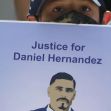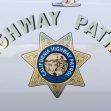The California Highway Patrol (CHP) is not responsible for the acts of a drunk, off-duty officer who shot his neighbor in the back. Finding no “causal nexus” between the officer’s job and his criminal act, a California Court of Appeal affirmed the lower court’s dismissal of the case, which was brought by the injured man and his family.
The unanimous opinion of Justice Kenneth Yeagan of Division Six of the California Court of Appeal recounts the events that led up to the lawsuit. The altercation took place shortly after the Thomas Fire in Ventura County in December 2017. At that time, while deciding whether or not to evacuate his home, Sorin Popescu, the plaintiff and shooting victim, heard a noise in the house next door. Fearing that his neighbor’s house was being looted, he decided to investigate. He soon encountered Dalton, who was neither in uniform nor carrying a badge or any other identification.
Dalton had arrived at the scene on his bicycle, rather than in a marked car. His errant behavior led Popescu to believe that Dalton was drunk, so he asked him to leave the premises. Dalton wouldn’t leave but began questioning Popescu instead. He repeatedly informed the plaintiff that he was a CHP officer and that he was carrying a gun. Dalton began riding his bike in circles around Popescu and hit him in the leg. In response, Popescu grabbed Dalton’s handlebars and pushed the bicycle away, causing the “intoxicated” Dalton to fall off his bike. After he fell, he began yelling that Popescu had assaulted him, causing the plaintiff to go back into his house and call 911.
Dalton yelled that there was no need to call the cops because he was a cop. He continued his threats and after a brief interchange with a different neighbor, took a gun from his ankle holster and fired two shots. One hit Popescu in the back, inflicting severe injuries and requiring him to spend five days in the hospital. “Dalton was taken into custody and charged with firearms and assault offenses,” according to Yeagan’s unpublished opinion. There is no allegation that Dalton used a CHP-issued gun in the assault.
This was not Dalton’s first problem with the law, which he had sworn to enforce. Approximately three months before the incident with Popescu, a different neighbor complained about his drunken behavior when he walked around the neighborhood holding a rooster and asking the rather obscene question, “do you want to pet my cock?” His co-workers also complained that he had been “drunk dialing” them. He was referred to CHP’s employee assistance program where he admitted to frequent use of alcohol.
In two complaints, Popescu alleged assault and battery; intentional and negligent infliction of emotional distress; negligence, negligent supervision, training and discipline; and violation of the Bane Act, and his civil rights. Both complaints allege CHP’s vicarious liability for Dalton’s behavior because he “was acting within the course and scope of his employment.” Plaintiff’s reasoning was based on the facts that Dalton was carrying a concealed, loaded gun; he continually stated that he was a police officer; he had taken pictures of Popescu’s license plate; and he repeatedly interrogated him.
Plaintiff also linked Dalton’s behavior to the state of emergency the governor had declared as a result of the Thomas Fire. Plaintiff argued this action authorized CHP officers to be on duty at all times. They faulted CHP for not sufficiently disciplining Dalton after they became aware of his drinking problem. CHP responded to these allegations by insisting that Dalton was off-duty and was not acting within the scope of his employment. Therefore, the trial court concluded there was no cause of action against the CHP, and excused them from any direct liability. Their opinion did not change after an amended complaint, charging CHP with negligent supervision, training and discipline was filed.
The appeals court began its opinion with a discussion of vicarious liability and wrote that a governmental code required an employee to be “acting within the scope of his employment to give rise to a cause of action.” The code specifically eliminates liability “where the misconduct does not arise from the conduct of employer’s enterprise but instead arises out of a personal dispute.” Dalton’s drunken behavior and assault clearly stemmed from a personal dispute, according to the court. “Dalton’s violence toward Popescu had nothing to do with his employment,” Yeagan wrote.
The trial court also discounted the plaintiff’s argument that Dalton was on duty because of the state of emergency that existed after the Thomas Fire. The appellate court discounted this as well, stating the fire did not create “a causal nexus between tort and the employee’s work,” and that the shooting must have arisen from the work to be actionable. It did not. Dalton’s “confrontation with Popescu” was not related to CHP work responsibilities at all.
In addition, the appeals court failed to find a “specific statute declaring a public entity (CHP) to be liable. Otherwise, the general rule of immunity for public entities would be largely eroded by the routine application of general tort principles,” Yeagan stated, again agreeing with the trial court judgment by Ventura Superior Court Judge Mark S. Borrell. Yeagan summarized, “Because we have concluded appellants cannot, as a matter of law, allege causes of action for negligence against respondents, we need not address these contentions.” Neither did Dalton violate the Bane Act because the Act “does not create direct liability on the part of a state agency for an employee’s conduct that violates constitutional or statutory rights.” Again, the court found no cause of action.
Yeagan’s conclusion echoes not only his adamant defense of the lack of connection between Dalton’s wayward behavior and his employment, but it also demonstrates his strong displeasure for the off-duty officer’s behavior. “Firearms and alcohol do not mix,” he wrote.






